Art & Exhibitions
In Pictures: Artist Kenzo Digital’s New, Multilevel Installation Atop a New York City Skyscraper Has to Be Seen to Be Believed
The immersive art installation harnesses the power of the New York City skyline.

The immersive art installation harnesses the power of the New York City skyline.

Sarah Cascone

Brooklyn artist Kenzo Digital has transformed the heart of Midtown Manhattan into infinite artwork in the sky in Air, his new, permanent art installation at Summit One Vanderbilt, the Snøhetta-designed top three floors of the 93-story skyscraper that opened next to Grand Central Station last September.
A reflective chamber of light and glass in which nearly every surface becomes another vantage on New York City, Air has to be seen to be believed, an observation deck that doubles as an immersive work of art. Altogether, there are 25,000 square feet of mirrors.
“Even if I wanted to describe what you’re about to walk into in words, language is a bit limiting,” Kenzo warned Artnet News at ground level, before our visit began.
The experience begins in the darkened hallway approaching the elevators, which are completely mirrored, with a dramatic light and sound show (titled “Launch”) marking the ascent to the 91st floor.
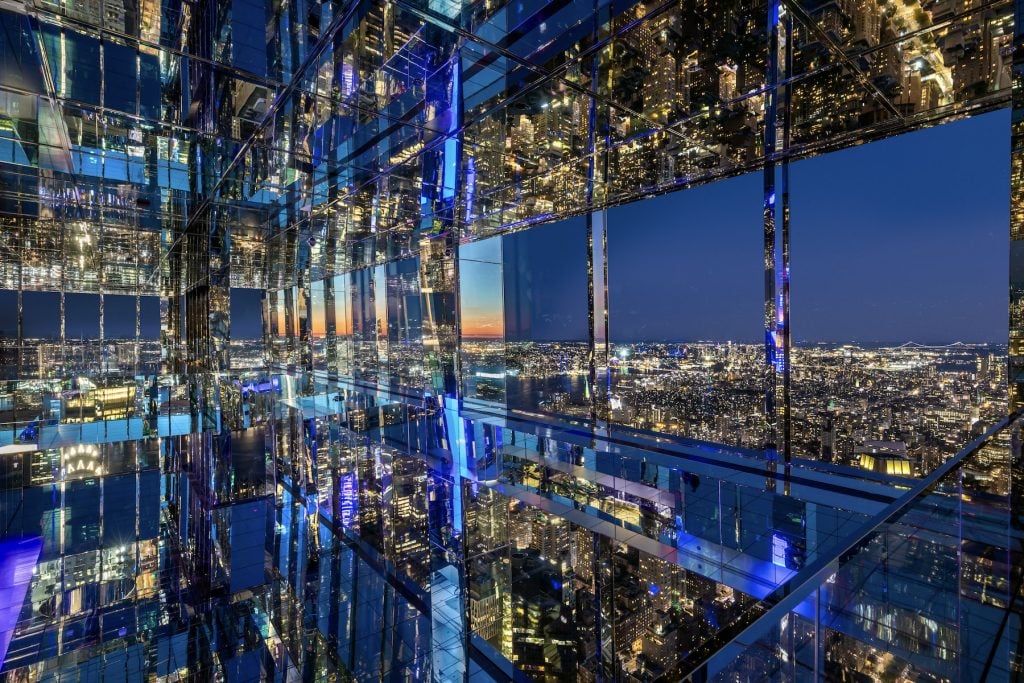
Kenzo Digital, Air, “Transcendence,” at Summit One Vanderbilt. Photo courtesy of the artist and Summit One Vanderbilt.
From there, visitors walk down a curving white hallway bathed in shifting colored light and into the mirrored abyss, the city streets and skyline suspended in front, above, and beneath you, into infinity, reflected over and over again. (Guests are advised to wear pants or opaque tights, but complimentary black shorts are available on request.)
“You have Central Park, where New Yorkers can escape the city, and I think of this almost as a Central Park in the sky—it’s a surrealist nature experience that can only happen in New York,” Kenzo said. “I think of it as a modern monument that represents the future of the city.”
The view is stunning, especially as you’re staring down at the Chrysler Building, or watching the lights of the Empire State Building flicker on as twilight settles over Manhattan. Pro tip: lie down on the floor and stare up into the endless ceiling, contemplating existence.
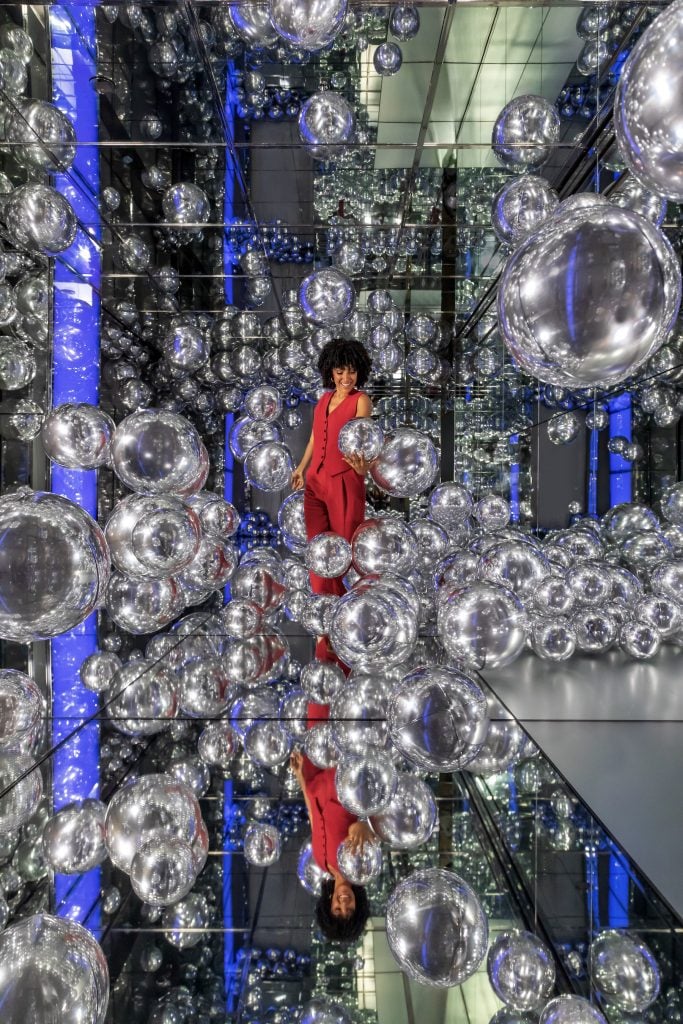
Kenzo Digital, Air “Affinity” at Summit One Vanderbilt. Photo courtesy of the artist and Summit One Vanderbilt.
“Living in New York, you’re so cut off from nature. In the shadows of the buildings, you never see the sun. Here, you get reacquainted with the nature that you live amongst,” Kenzo added. “I’ve seen storm systems blow in from New Jersey. You’ll watch this dark cloud of thunder approaching from the west, and you look down at the streets of Manhattan, and everyone is oblivious to what’s about to happen. As the storm begins to hit, you start to see the city as a real organism, reacting to the weather. You see fewer people outside, you see umbrellas, traffic moves differently in relation to the wet streets.”
As such, Air is a work in constant flux, changing in response to the light and weather. A soundtrack from sound designer Joseph Fraioli, who has worked with director Christopher Nolan on such films as Tenet, is carefully synced to the time of day, adding to the effect.
Air will also evolve over time, both in response to the city’s never-ending development, and by the artist’s design—Kenzo has five years’ worth of versions of the shifting light show that begins each day at sundown, the twinkling lights cascading through the never-ending layers of the mirrored chamber.
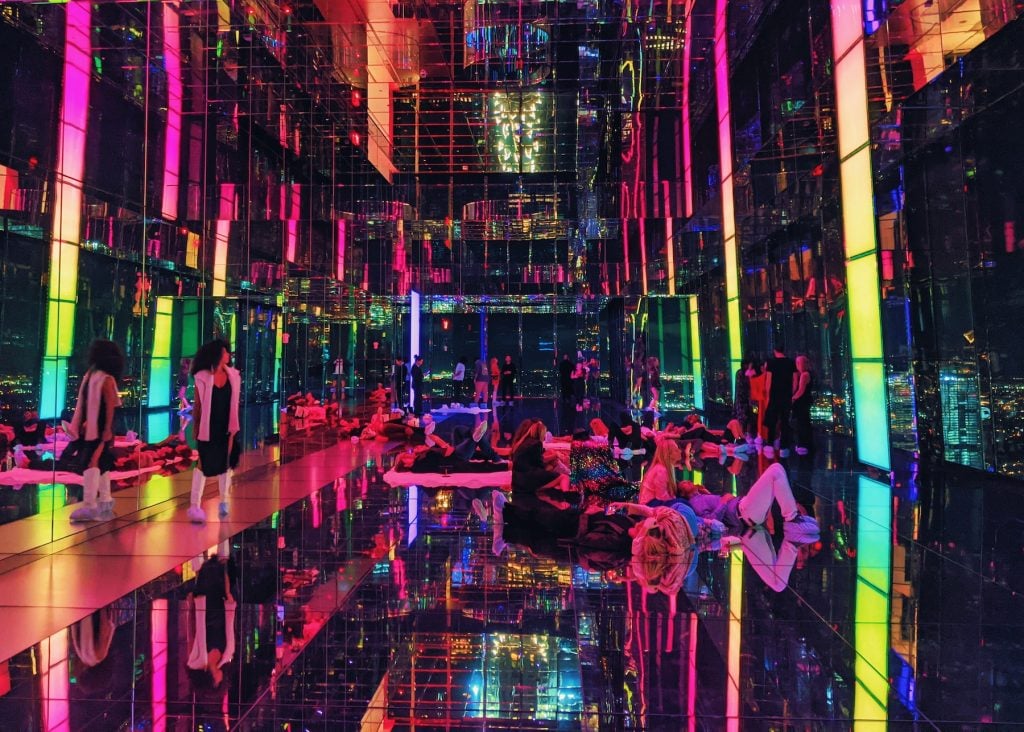
Kenzo Digital, Air, “Transcendence,” at Summit One Vanderbilt. Photo courtesy of the artist and Summit One Vanderbilt.
“It has a life of its own,” Kenzo said. “I wanted to create a space that has a deeply emotional relationship with human beings over time.”
The 41-year-old artist, who also serves as the creative director of the estate of Nam June Paik (his great-uncle), spent three and a half years on the project, which opened last month. Most of the on-site work took place during lockdown, when the bustling Midtown neighborhood was eerily empty.
“I spent most of 2020 in a gas mask in abandoned New York. It was like living in a sci-fi movie,” Kenzo said.
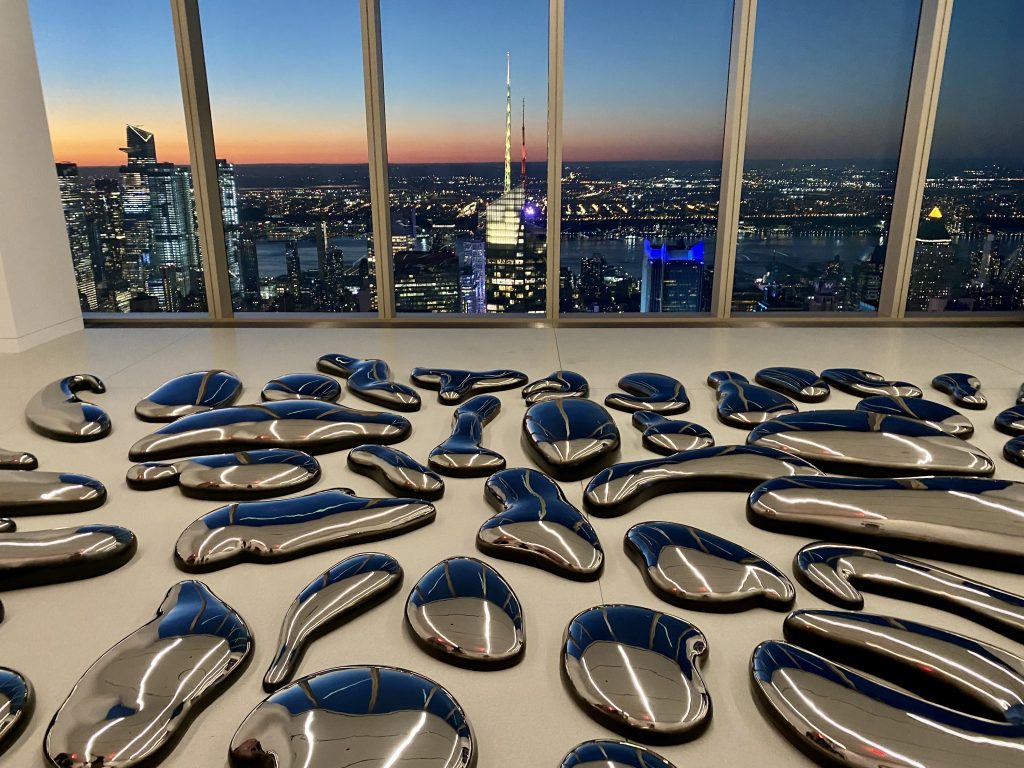
Yayoi Kusama’s Clouds on view in Kenzo Digital’s Air at Summit One Vanderbilt. Photo by Sarah Cascone.
Air‘s spaces are divided into “chapters,” and the main space “Transcendence,” constitutes the first and third. It spans two floors, with a balcony overlooking the mirrored space where you enter.
Chapter two, “Affinity,” is a smaller mirrored space filled with round silver Mylar balloons that swirl around the room in constant motion, recalling Andy Warhol’s Silver Clouds. Chapter four, “Unity,” is a massive, 47-foot-wide video screen that transports viewers into the clouds. (Kenzo is known for his digital art, such as the video background he created for Beyoncé’s Billboard Awards performance in 2011.)
“This screen is the newest Samsung micro LED technology—this wasn’t possible a year ago,” Kenzo said. “It’s a constantly generative cloudscape that integrates the faces of visitors.”
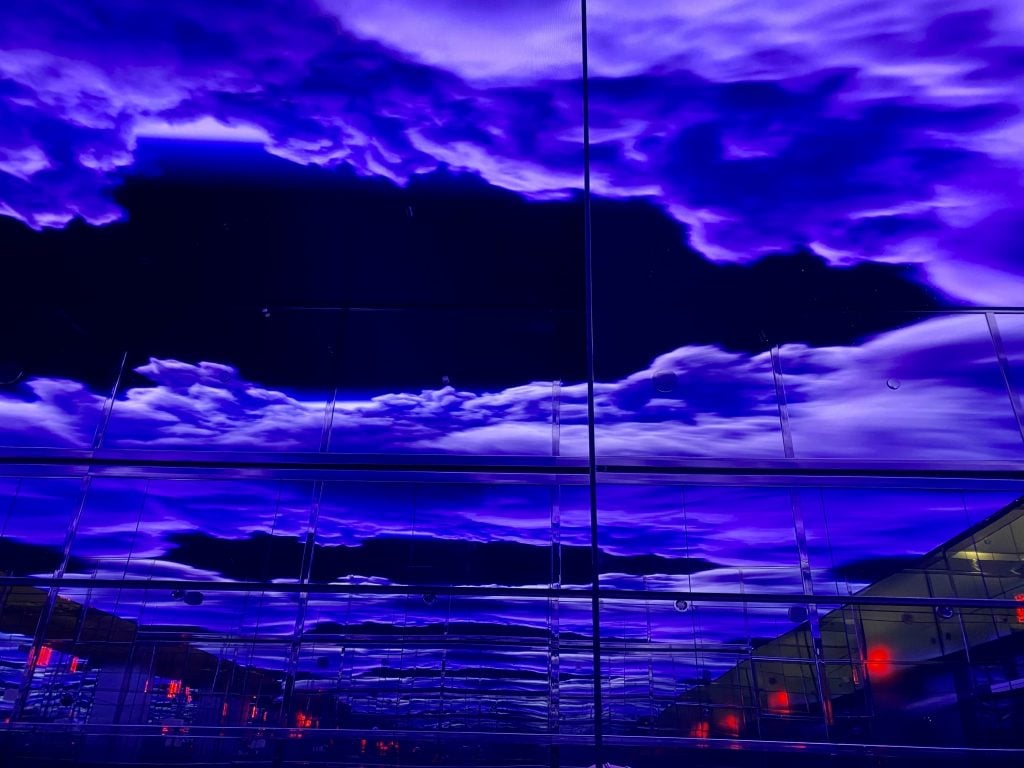
Kenzo Digital, Air, at Summit One Vanderbilt. Photo by Sarah Cascone.
There’s also an art gallery, in which Kenzo is curating presentations of the work of other artists. His first selection is Yayoi Kusama’s Clouds (2019), roughly 100 mirror-finished, stainless-steel blobs that spill across the floor, continuing the reflective theme. (It was acquired by the building from David Zwirner Gallery.)
In addition, guests will want to step out onto the ledge of Levitation, a glass box that projects over over the building, so you can stare down at the street below. (It’s not part of the art, but it’s pretty cool.)
Tickets start at $39 for adults, with $10 surcharge for sunset visits. For an extra $20, you can also experience Ascent, a glass elevator perched on the building’s exterior up even higher, suspending you over 1,200 feet in the air. (New York City residents get a $5 discount on admission.)
See more photos below.
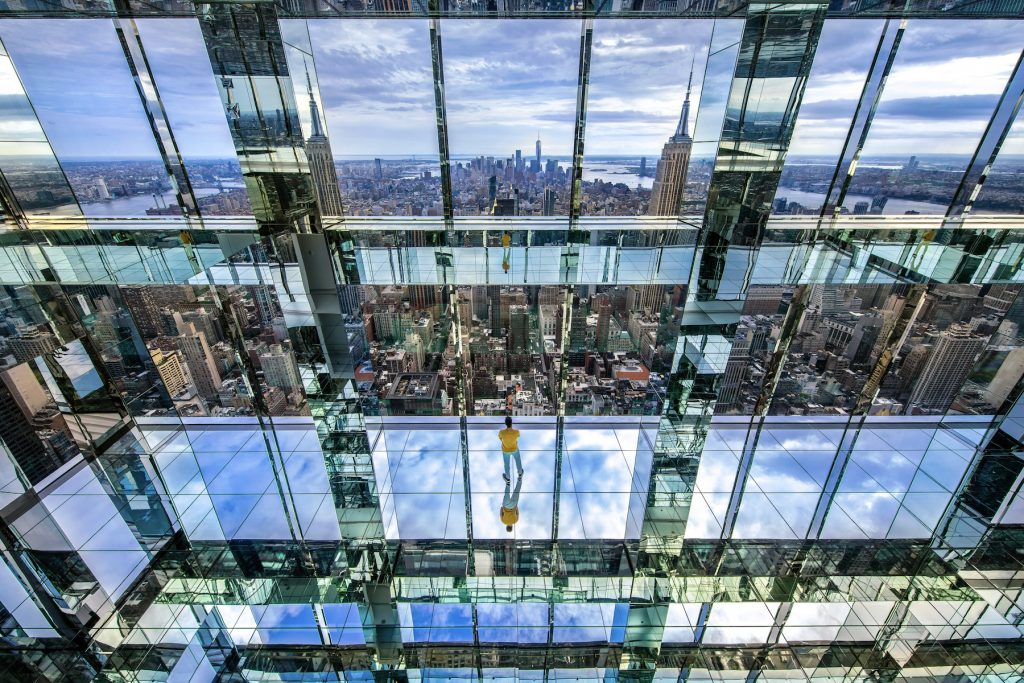
Kenzo Digital, Air, “Transcendence,” at Summit One Vanderbilt. Photo courtesy of the artist and Summit One Vanderbilt.
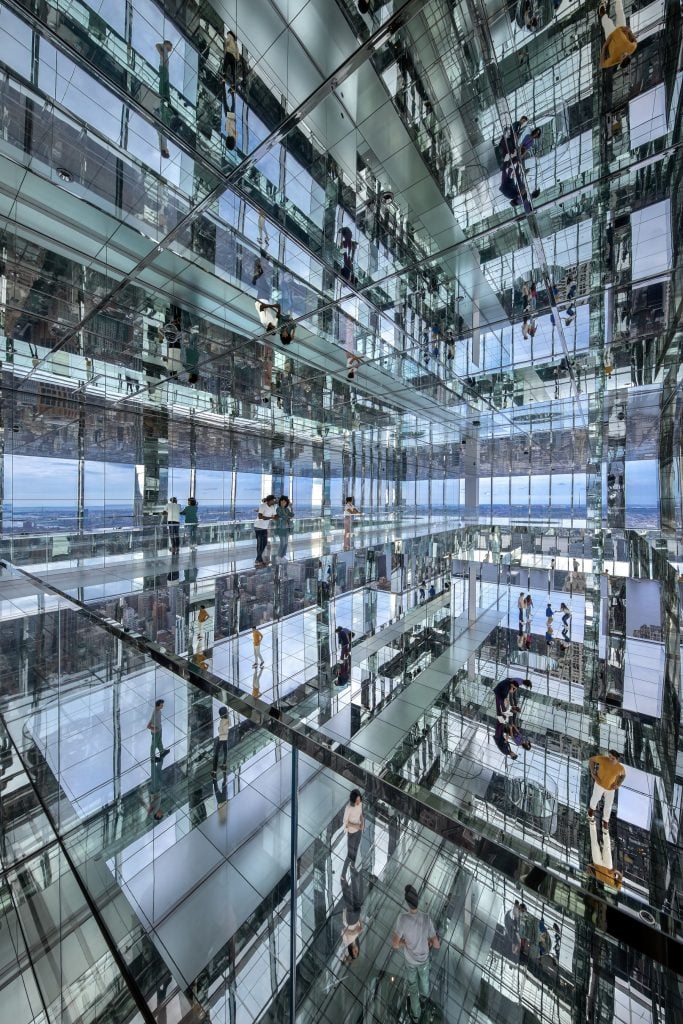
Kenzo Digital, Air, “Transcendence,” at Summit One Vanderbilt. Photo courtesy of the artist and Summit One Vanderbilt.
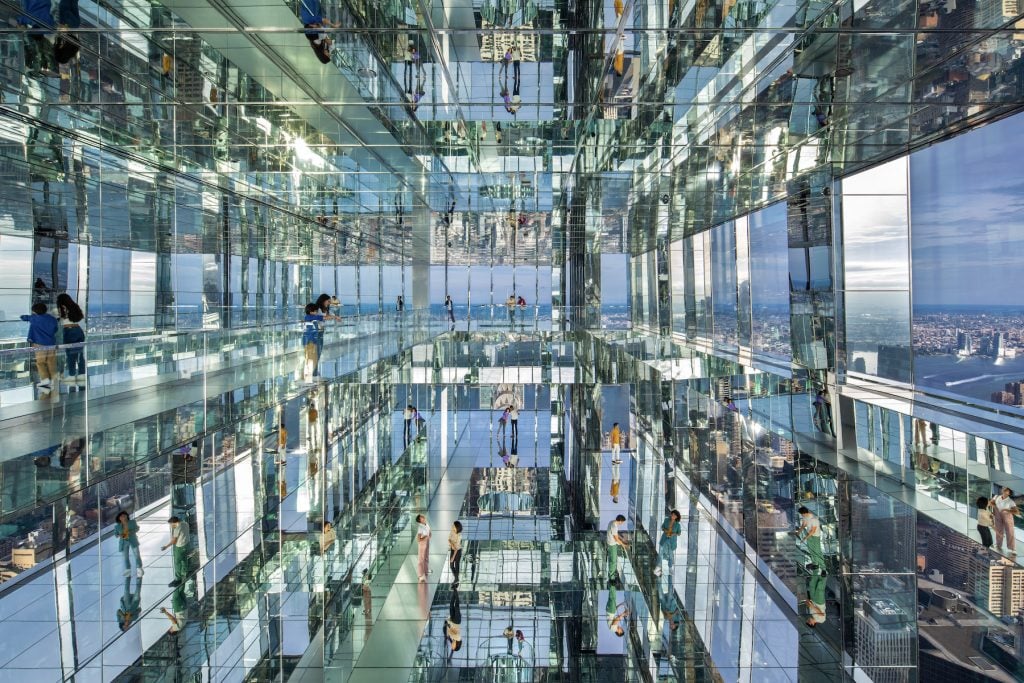
Kenzo Digital, Air, “Transcendence,” at Summit One Vanderbilt. Photo courtesy of the artist and Summit One Vanderbilt.
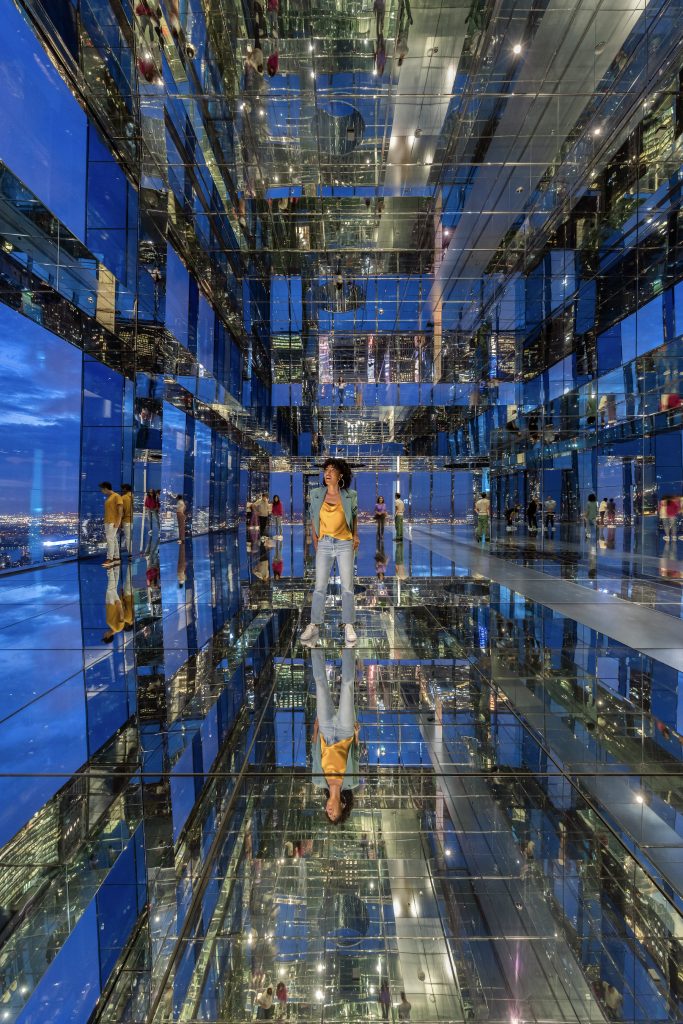
Kenzo Digital, Air, “Transcendence,” at Summit One Vanderbilt. Photo courtesy of the artist and Summit One Vanderbilt.
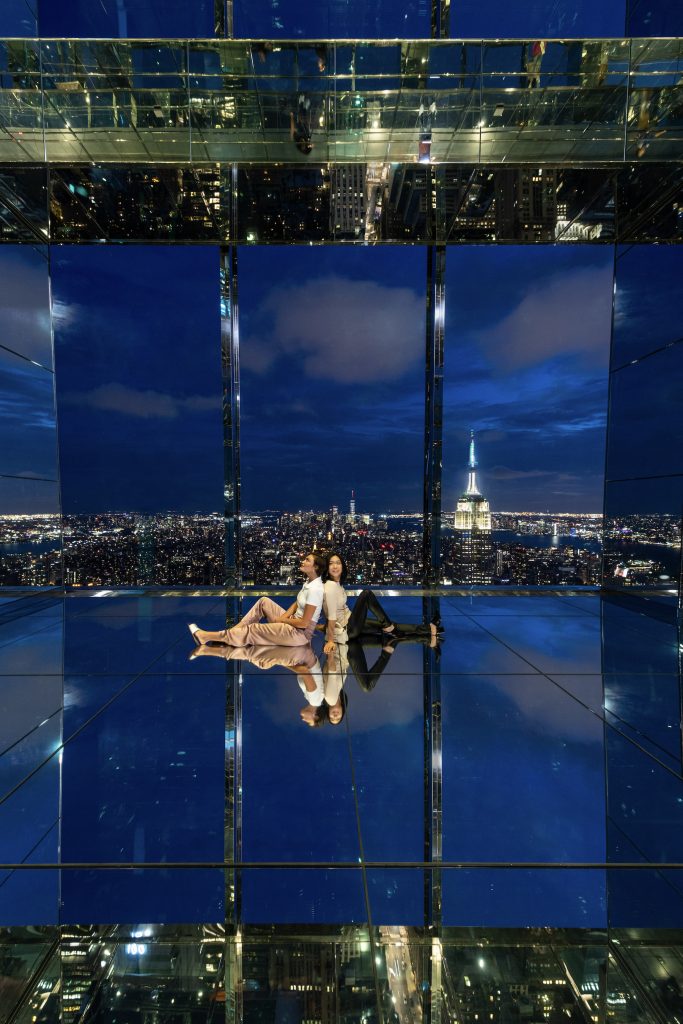
Kenzo Digital, Air, “Transcendence,” at Summit One Vanderbilt. Photo courtesy of the artist and Summit One Vanderbilt.
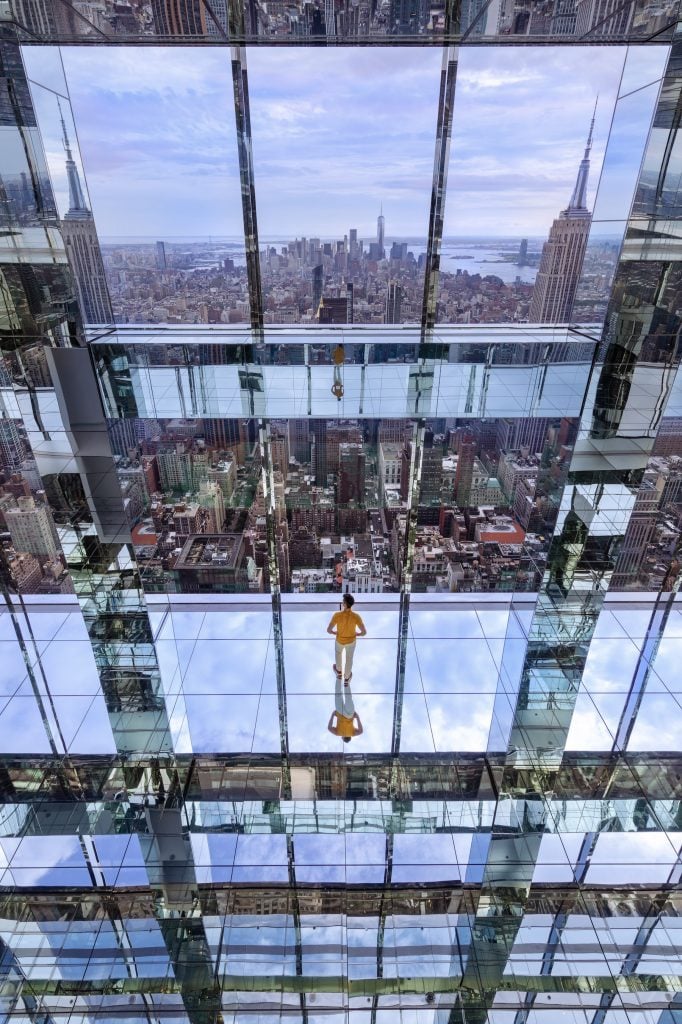
Kenzo Digital, Air, “Transcendence,” at Summit One Vanderbilt. Photo courtesy of the artist and Summit One Vanderbilt.
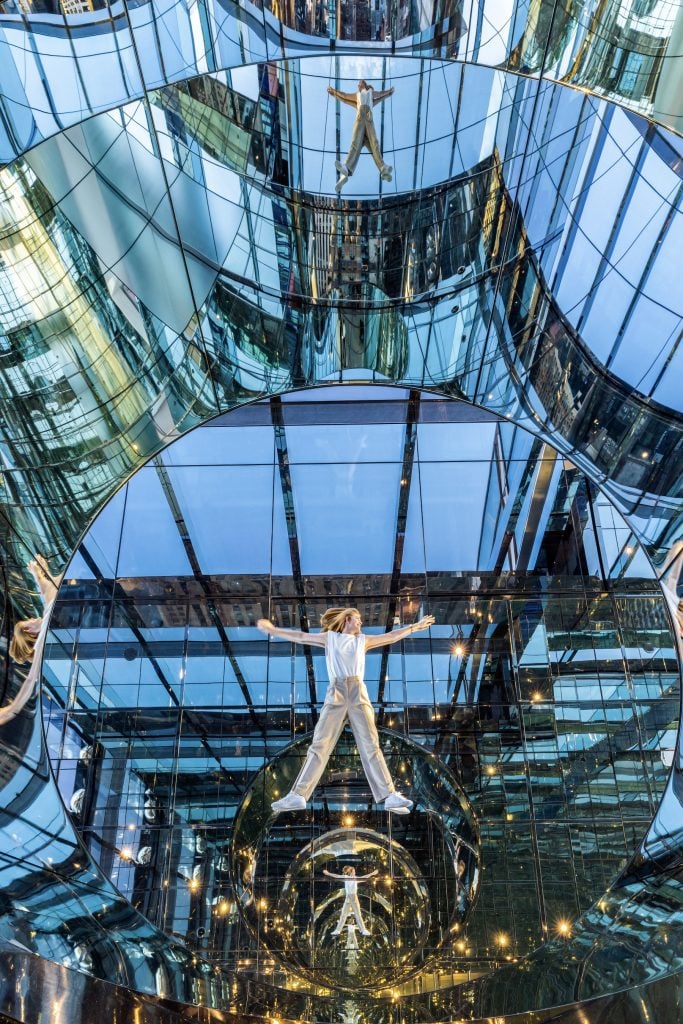
Kenzo Digital, Air, “Transcendence,” at Summit One Vanderbilt. Photo courtesy of the artist and Summit One Vanderbilt.
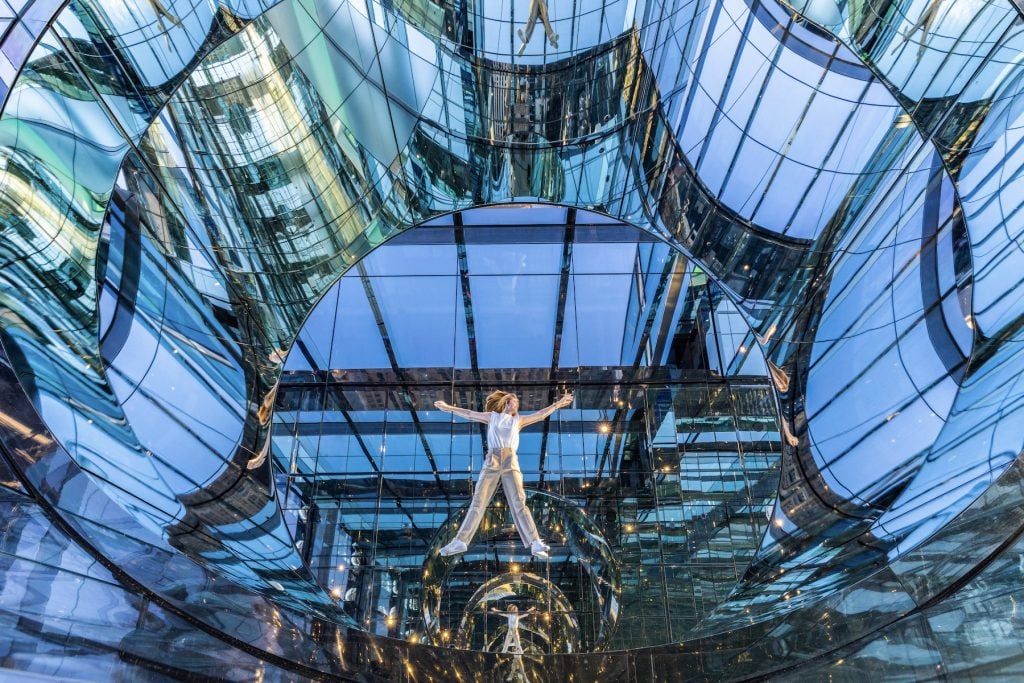
Kenzo Digital, Air, “Transcendence,” at Summit One Vanderbilt. Photo courtesy of the artist and Summit One Vanderbilt.
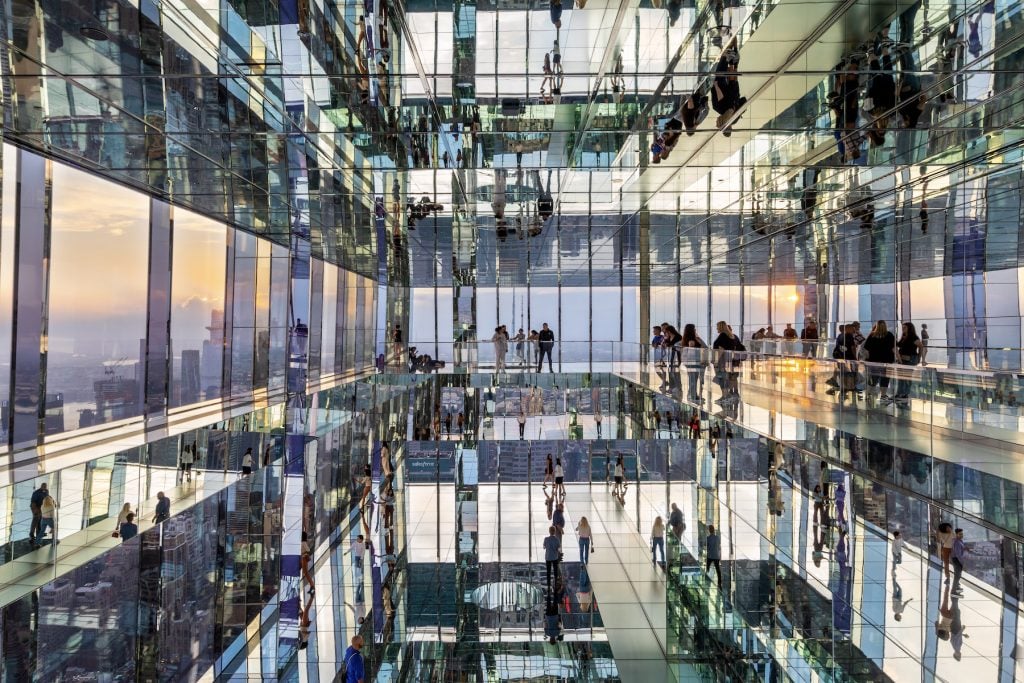
Kenzo Digital, Air, “Transcendence,” at Summit One Vanderbilt. Photo courtesy of the artist and Summit One Vanderbilt.
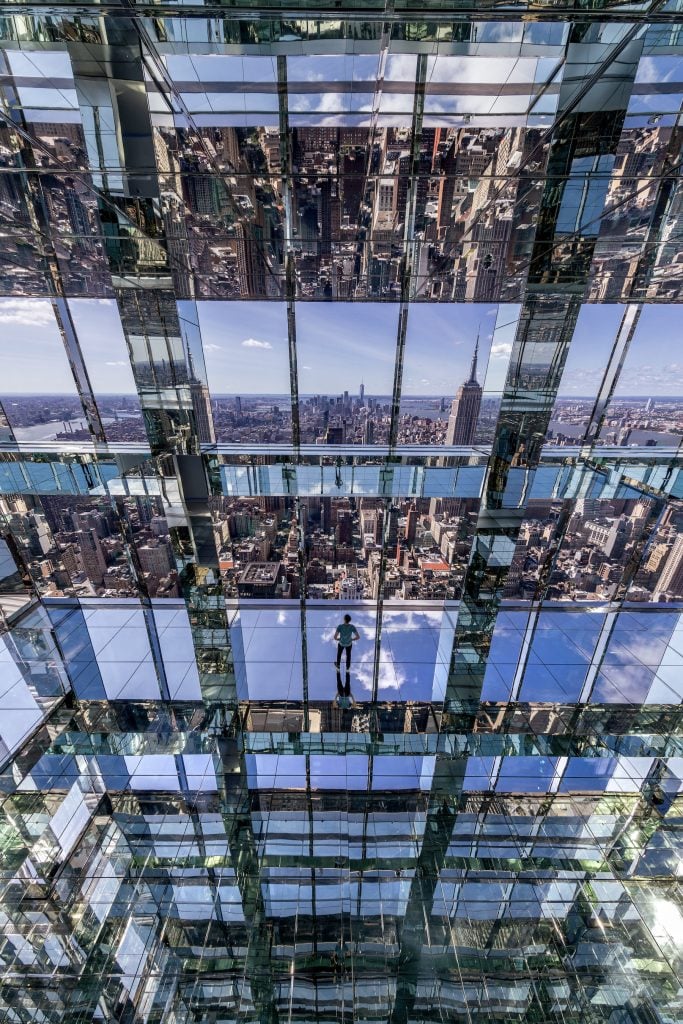
Kenzo Digital, Air, “Transcendence,” at Summit One Vanderbilt. Photo courtesy of the artist and Summit One Vanderbilt.
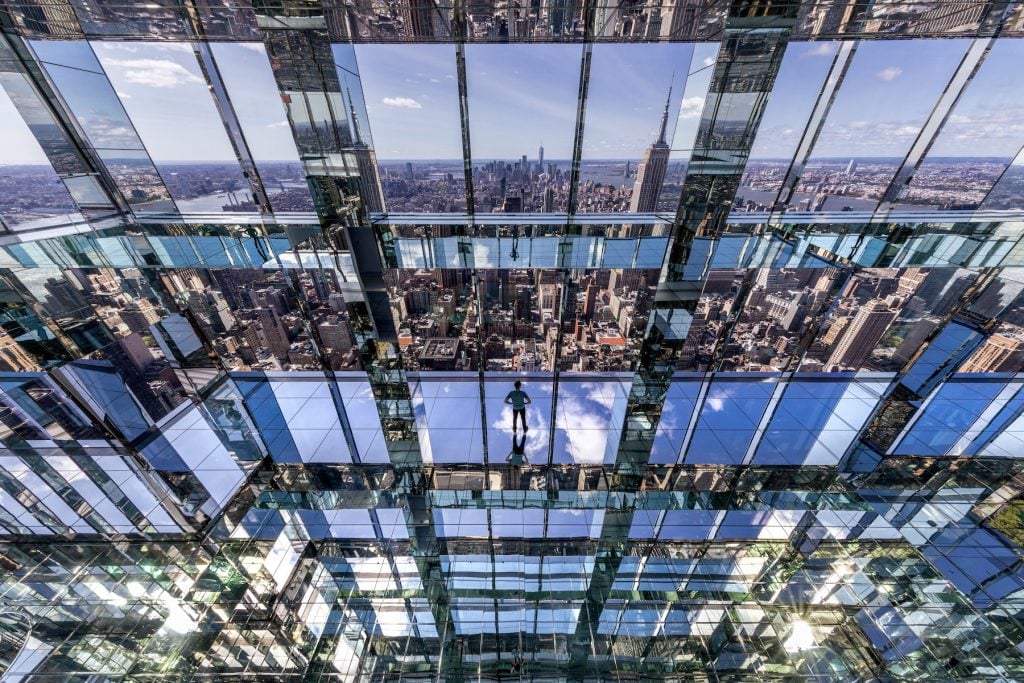
Kenzo Digital, Air, “Transcendence,” at Summit One Vanderbilt. Photo courtesy of the artist and Summit One Vanderbilt.
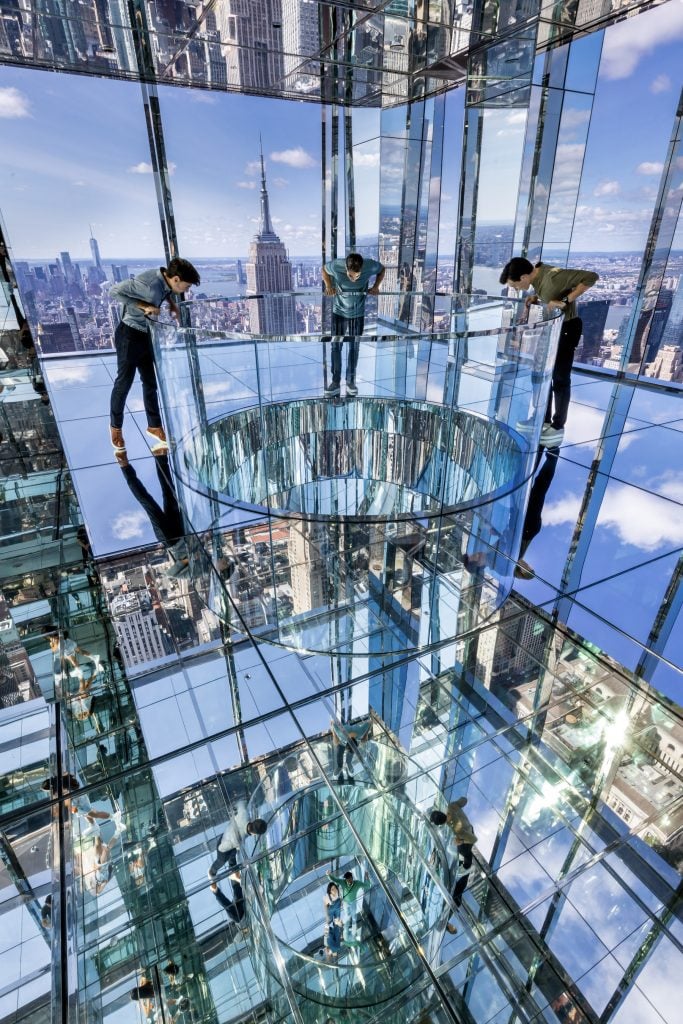
Kenzo Digital, Air, “Transcendence,” at Summit One Vanderbilt. Photo courtesy of the artist and Summit One Vanderbilt.
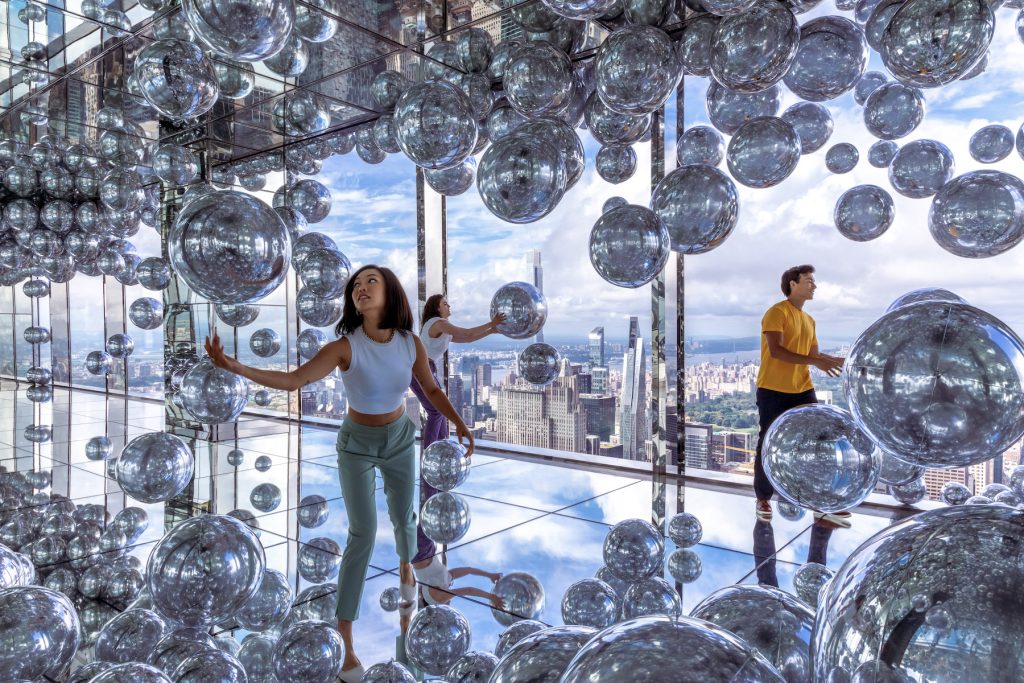
Kenzo Digital, Air, “Affinity,” at Summit One Vanderbilt. Photo courtesy of the artist and Summit One Vanderbilt.
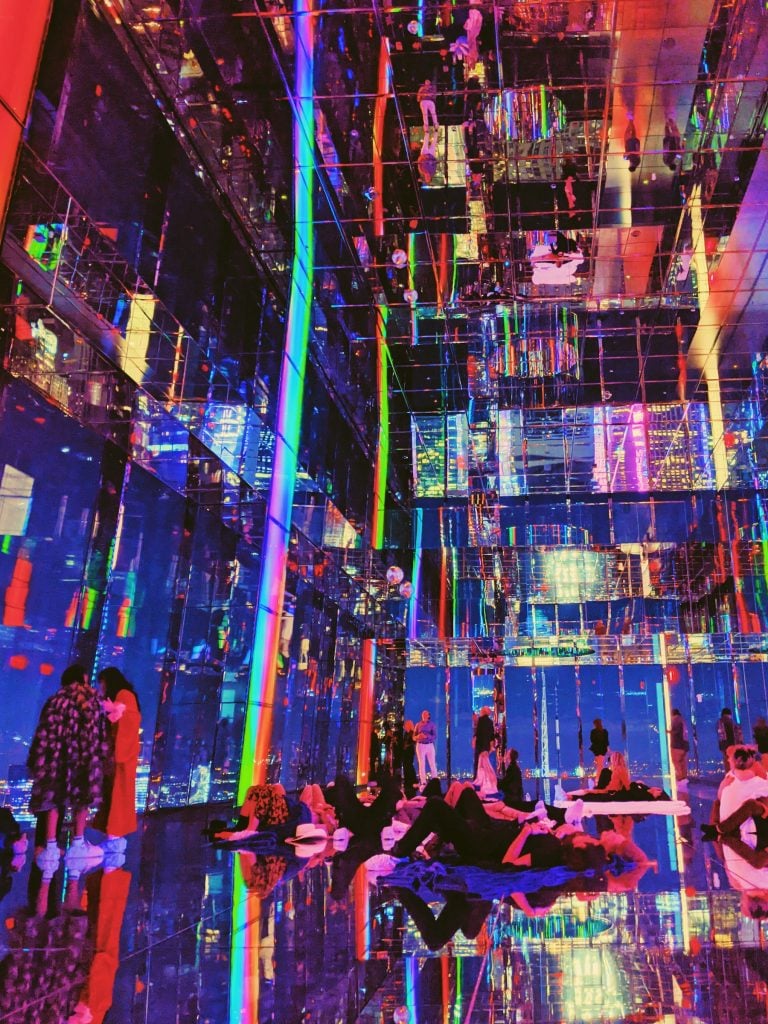
Kenzo Digital, Air, “Transcendence,” at Summit One Vanderbilt. Photo courtesy of the artist and Summit One Vanderbilt.

Kenzo Digital, Air, “Transcendence,” at Summit One Vanderbilt. Photo courtesy of the artist and Summit One Vanderbilt.
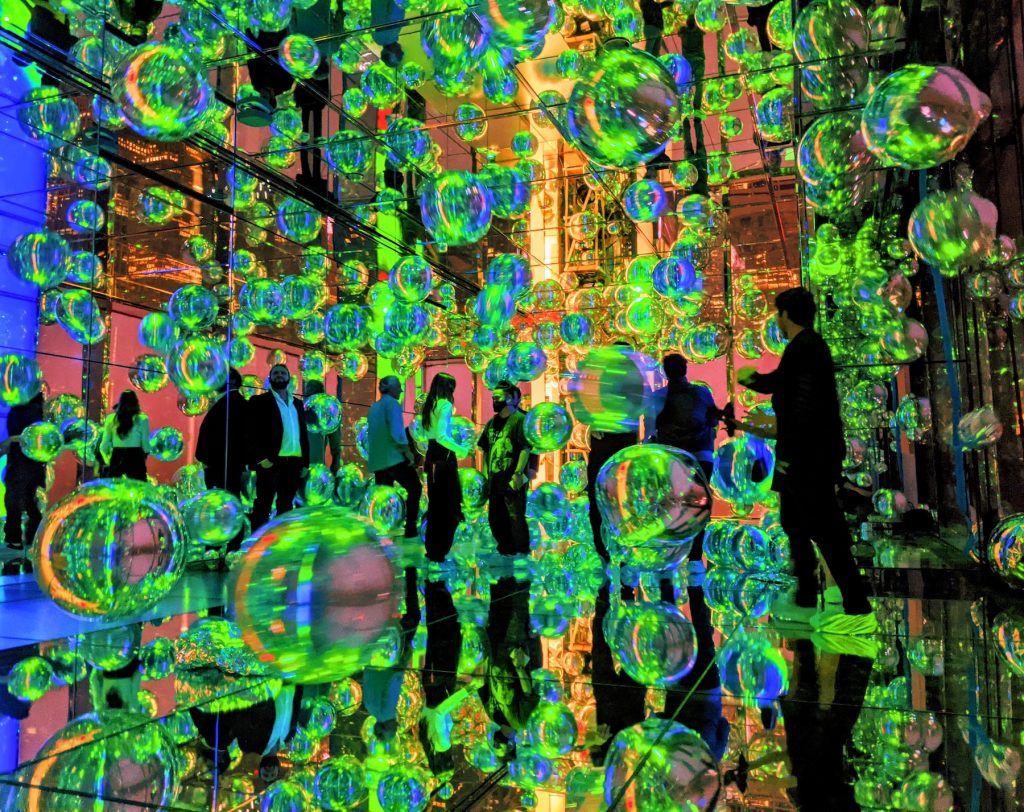
Kenzo Digital, Air, “Affinity,” at Summit One Vanderbilt. Photo courtesy of the artist and Summit One Vanderbilt.
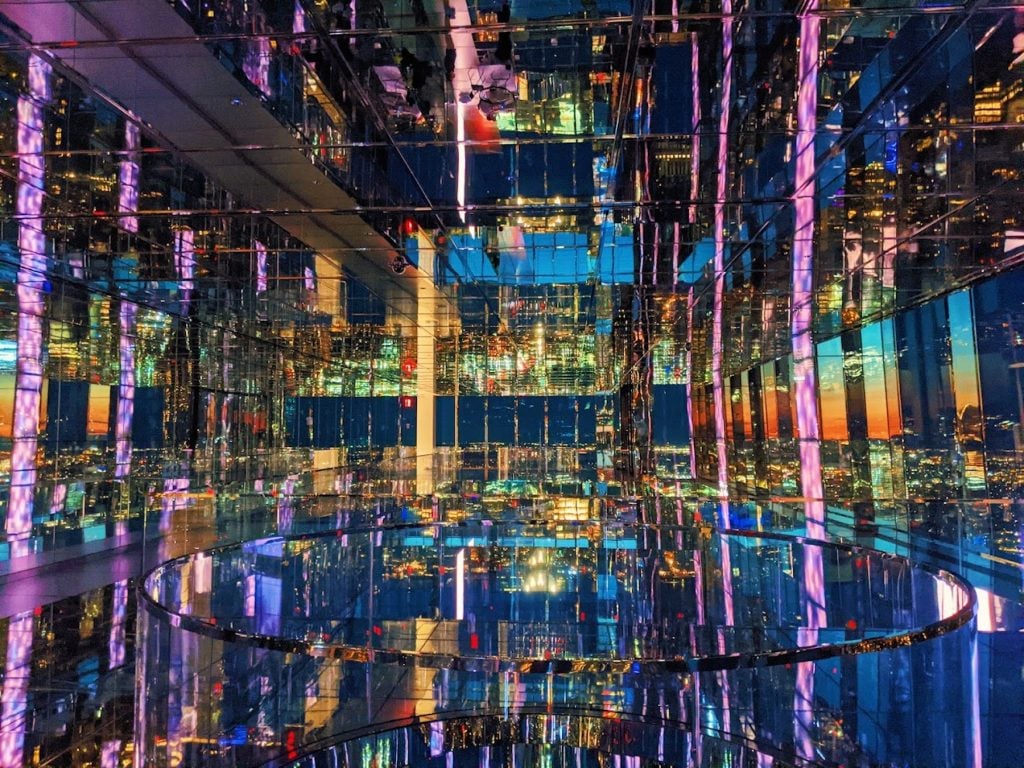
Kenzo Digital, Air, “Transcendence,” at Summit One Vanderbilt. Photo courtesy of the artist and Summit One Vanderbilt.
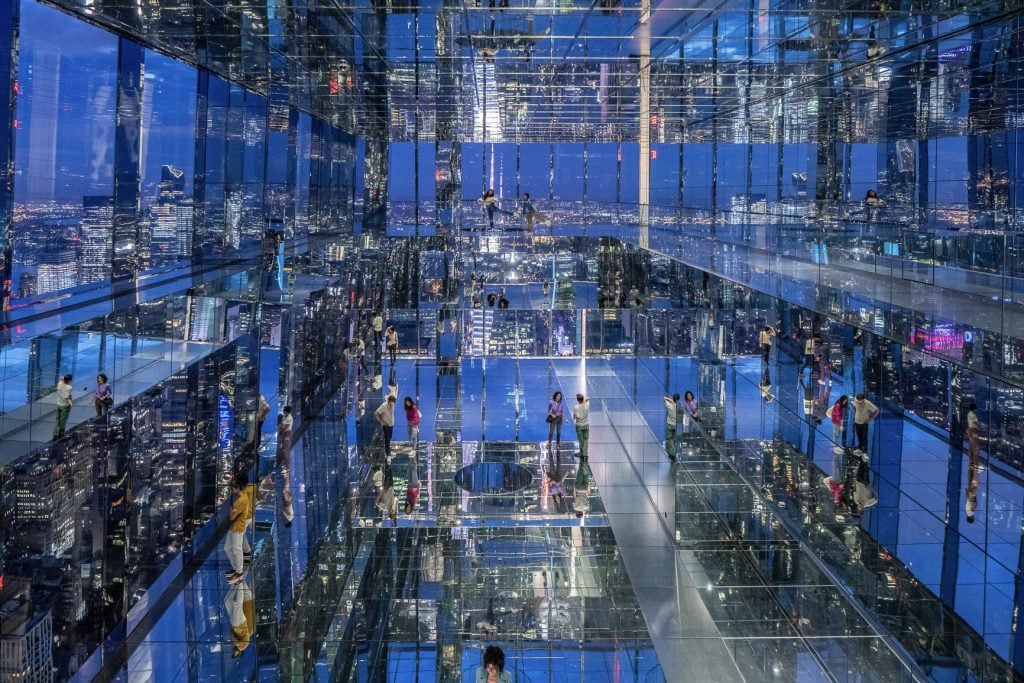
Kenzo Digital, Air, “Transcendence,” at Summit One Vanderbilt. Photo courtesy of the artist and Summit One Vanderbilt.
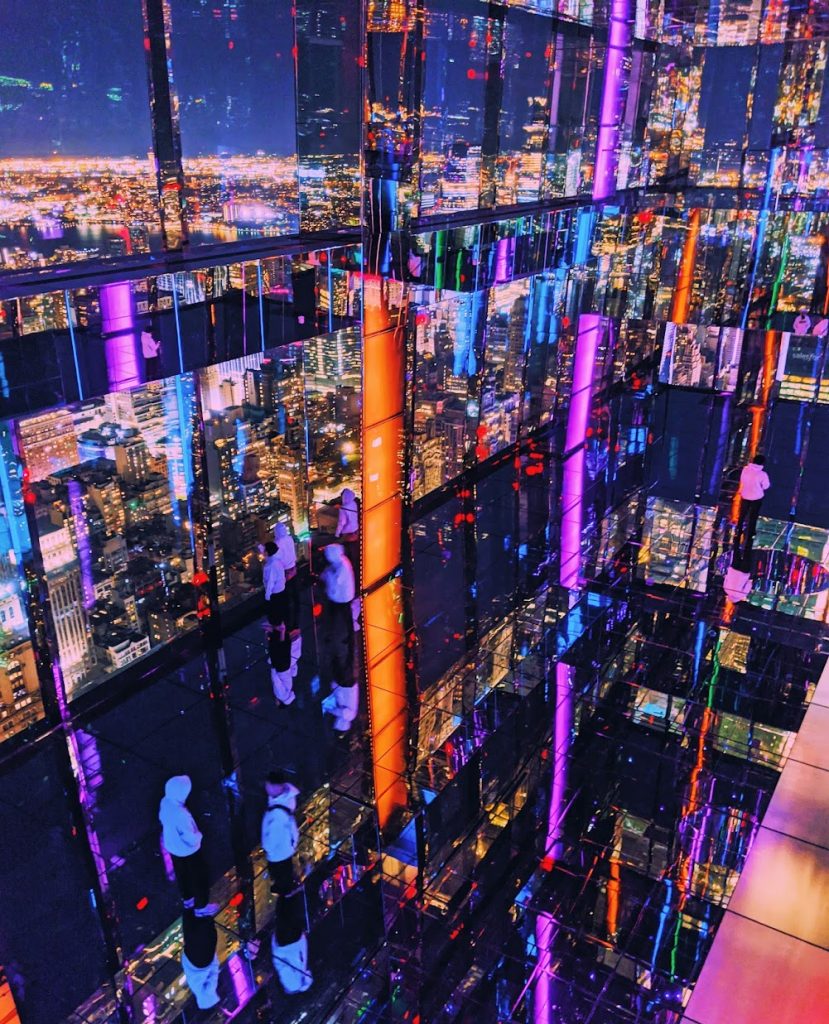
Kenzo Digital, Air, “Transcendence,” at Summit One Vanderbilt. Photo courtesy of the artist and Summit One Vanderbilt.
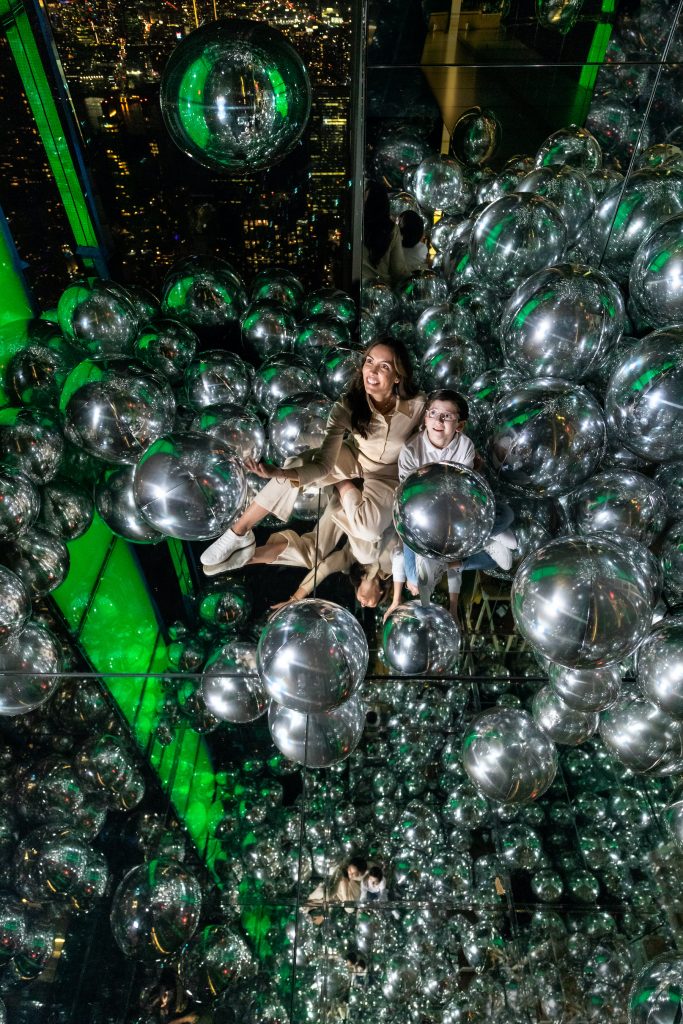
Kenzo Digital, Air, “Affinity,” at Summit One Vanderbilt. Photo courtesy of the artist and Summit One Vanderbilt.
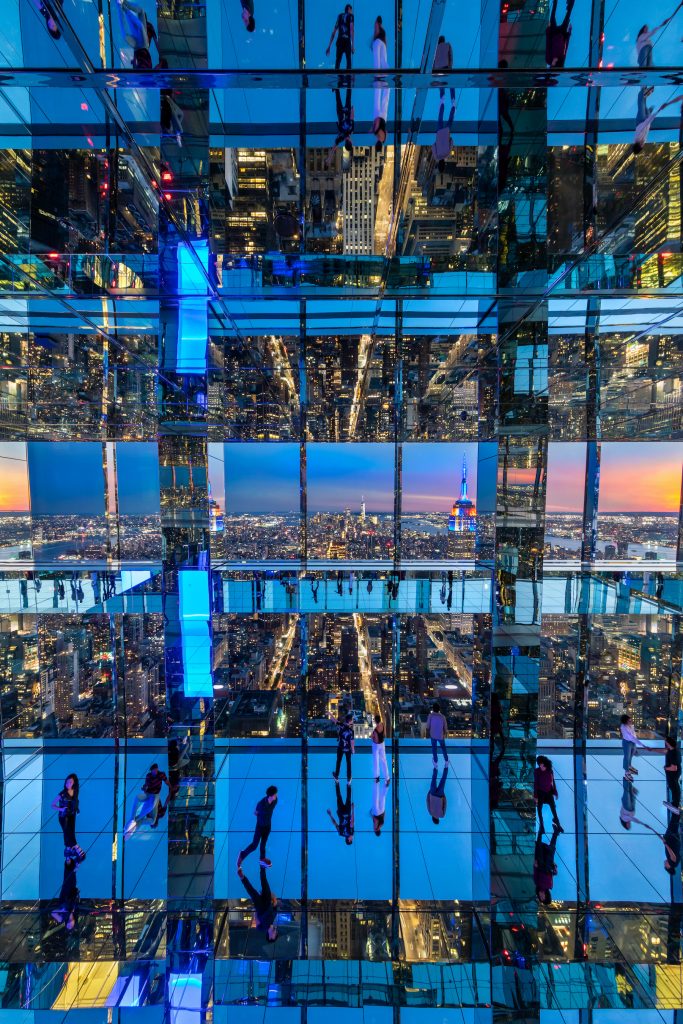
Kenzo Digital, Air, “Transcendence,” at Summit One Vanderbilt. Photo courtesy of the artist and Summit One Vanderbilt.
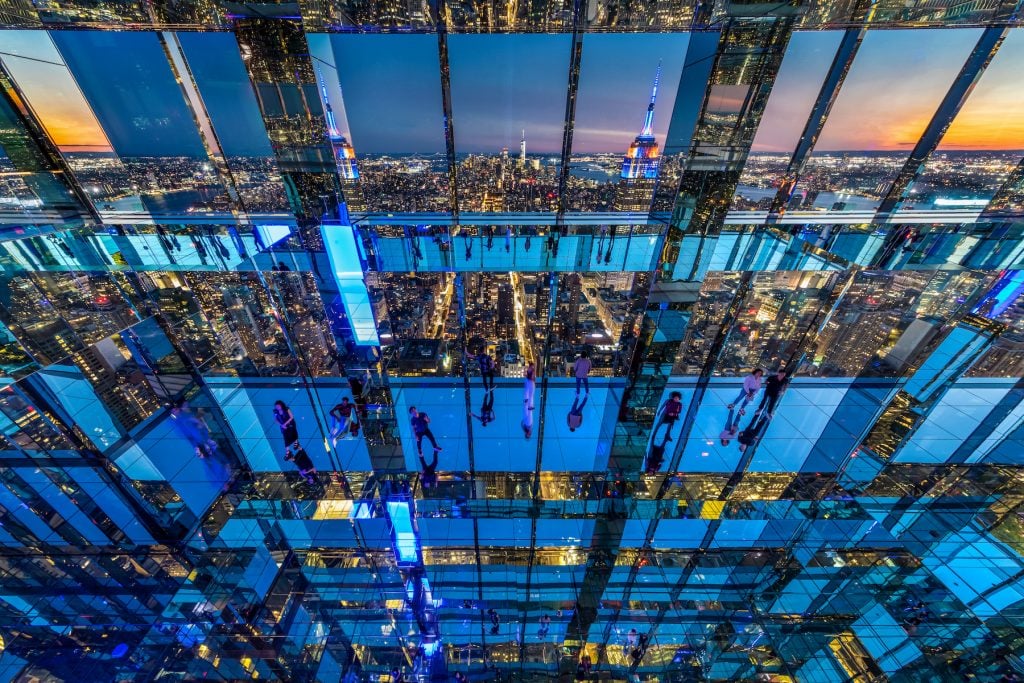
Kenzo Digital, Air, “Transcendence,” at Summit One Vanderbilt. Photo courtesy of the artist and Summit One Vanderbilt.
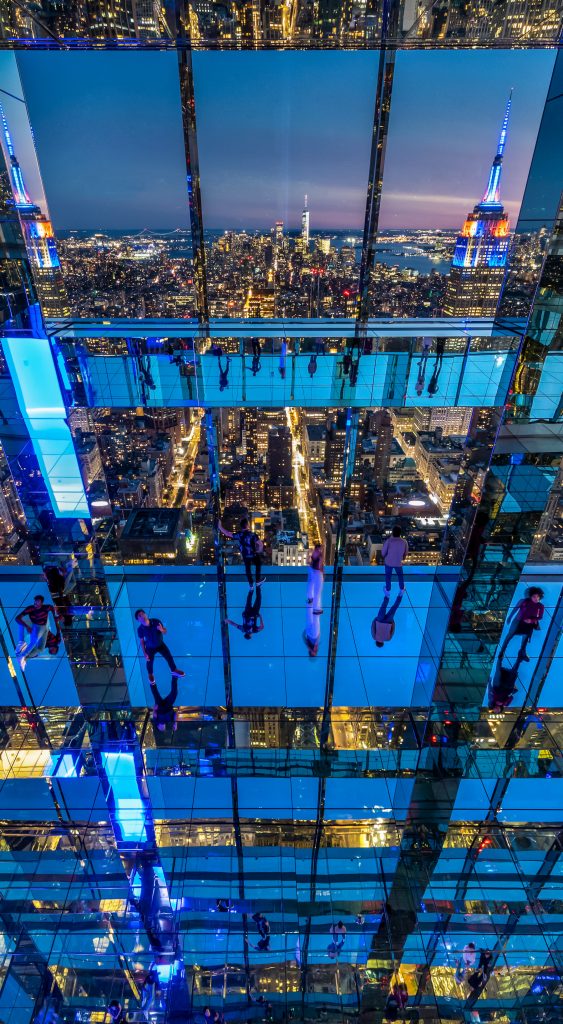
Kenzo Digital, Air, “Transcendence,” at Summit One Vanderbilt. Photo courtesy of the artist and Summit One Vanderbilt.
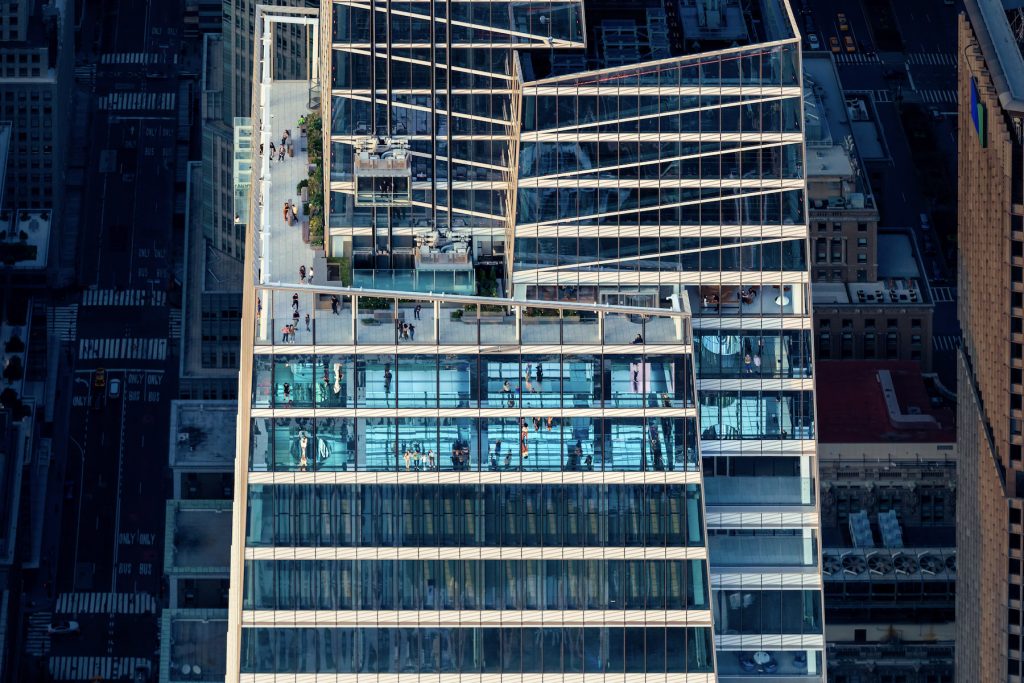
Summit One Vanderbilt. Photo courtesy of Summit One Vanderbilt.
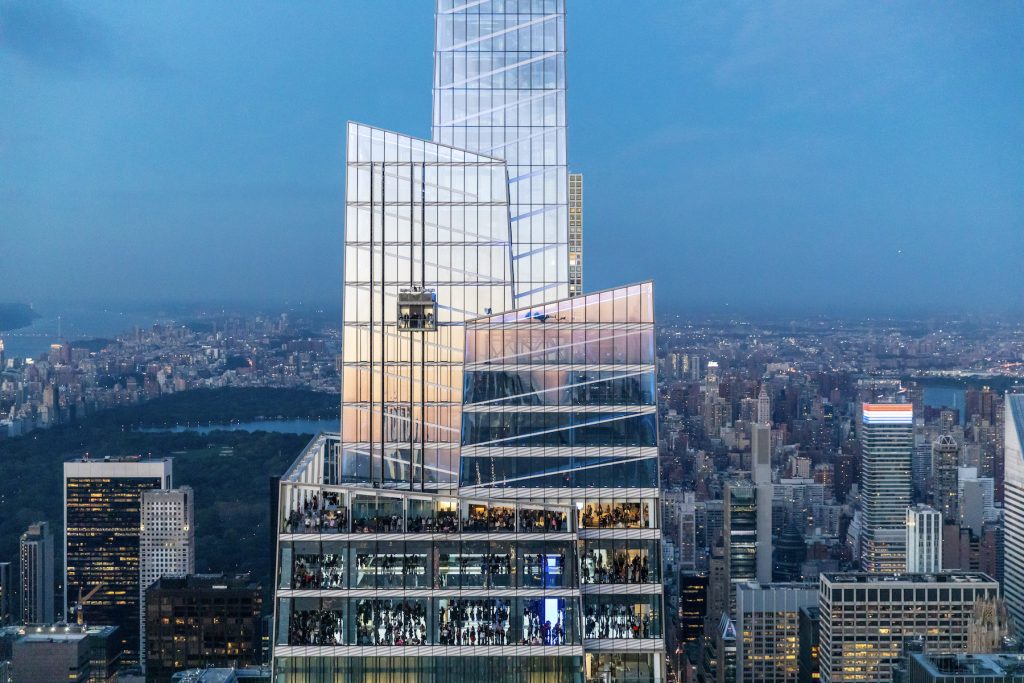
Summit One Vanderbilt. Photo courtesy of Summit One Vanderbilt.